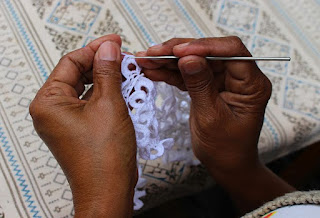Wart
Mole
BirthmarkSorcerer
Poulticies
Charms
Spells
Heretic
Thumbs screw
Evidence
Trial
Hag
An evil spell=hex
Cat
Sorcery
Torture
Deviltry
Familiar
Devil’s mark
Prey
Burn at the stake
Death sentence
Sleep deprivation
Cunning folk

Witches
In
Shakespeare’s time people believed in witches. They were people who had made a
pact with the Devil in exchange for supernatural powers. If your cow was ill,
it was easy to decide it had been cursed. If there was plague in your village,
it was because of a witch. If the beans didn’t grow, it was because of a witch.
Witches might have a familiar – a pet, or a toad, or a bird – which was
supposed to be a demon advisor. People accused of being witches tended to be
old, poor, single women. It is at this time that the idea of witches riding
around on broomsticks (a common household implement in Elizabethan England)
becomes popular.
There
are lots of ways to test for a witch. A common way was to use a ducking stool,
or just to tie them up, and duck the accused under water in a pond or river. If
she floated, she was a witch. If she didn’t, she was innocent. She probably
drowned. Anyone who floated was then burnt at the stake. It was legal to kill
witches because of the Witchcraft Act passed in 1563, which set out steps to
take against witches who used spirits to kill people.
King
James I became king in 1603. He was particularly superstitious about witches
and even wrote a book on the subject. Shakespeare wrote Macbeth especially to appeal
to James – it has witches and is set in Scotland, where he was already king.
The three witches in Macbeth manipulate
the characters into disaster, and cast spells to destroy lives. Other magic
beings, the fairies, appear in A Midsummer
Night’s Dream. Elizabethans thought fairies played tricks on
innocent people – just as they do in the play.
Did you know?
There
are still Elizabethan superstitions that we follow today:
· don’t
walk under a ladder – they are bad luck because they are linked to gallows (the
wooden frame for hanging people)
· say
‘Bless you’ when someone sneezes – this is to stop the Devil entering your body
through your mouth
· don’t
spill salt – salt was very expensive in Elizabethan times, so spilling it was
very bad luck
· black
cats are unlucky – they were associated with witches
And
some ones we don’t:
· if
you can touch a condemned man, that’s good luck
· losing
your hair suddenly was a sign of bad luck to come
wordlist
curse
plague
broomstick
float
burn at
the stake
·
Witchcraft and magic
·
Witchcraft and magic
·
The Elizabethans believed in magic – both good and
bad. Many communities had 'cunning folk' who - it was believed – could cure
disease, provide charms and love spells, foretell the future, find lost
property and counter 'black' or 'dark' magic.
·
Dark magic
·
Dark magic was the domain of witches – people who had
supernatural powers because they had made a pact with the Devil. Witchcraft was
blamed for all sorts of bad fortune. If your animals got sick? A witch. Your
crops failed? Witch. Your milk went sour or your apples rotted? Witch. They
believed that witches had 'familiars' - an animal they could turn into so they
could spy on people and move around without being seen. The most popular
familiars were cats and toads, which is why witches are often depicted with
these animals.
·
The majority of people who were accused of witchcraft
were women - usually poor, single women who had nobody to protect them. Many
people also believed that women were spiritually 'weaker' than men, and
therefore easier for the Devil to win over. Illustrations from the time show us
what people imagined 'witches Sabbaths' to look like. They usually involve
potions bubbling in cauldrons, witches flying on broomsticks or on the backs of
goats and sometimes worshipping the Devil.
·
Once someone was accused of witchcraft, they were
tested, usually by 'ordeal'. One of the common ways was to 'duck' the accused
under water. They believed that water was purifying, so if the person floated,
it was because the water had rejected them, and they were guilty. If they sank,
they were innocent. Of course, this meant that many 'innocent' people drowned!
·
Elizabeth believed in witches, as most people did in
the 16th century, but she wasn't as worried about them as some later monarchs
such as James I were. However, she was concerned enough to pass the Witchcraft
Act of 1563, which made witchcraft a felony. This meant that once a 'witch' was
found she would be killed.
Wordlist
Crops
Sour
Rot
Toad
Ordeal
Felony
Do some research and answer the questions
1. Why do you think people
believed in witches?
2. Why were so many women accused
of being witches in the 17th century?
3. What were the ‘signs’ to spot
a witch?
4. What were the methods to
identify a witch?
5. Who was Matthew Hopkins?








